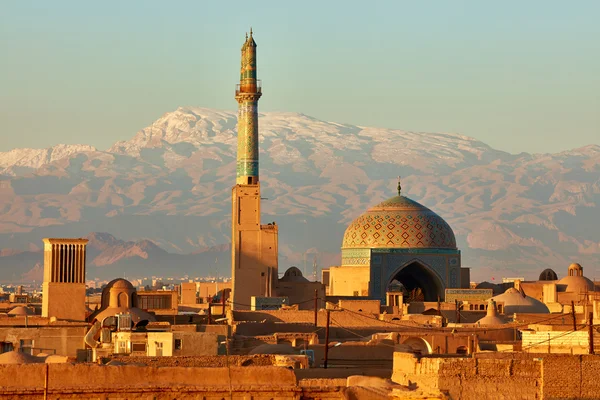
The situation in the Middle East is increasingly worrying as the conflict not only escalates but also expands. The attacks by Iran’s proxies have warranted a greater involvement of the United States and now Iran, seemingly embolden by the role it is playing in this war, decided to add a further layer of complexity to the situation. This week Iranian strikes where launched in Pakistani territory, which inevitably escalated tensions between the two countries.
Iran claimed it had only “targeted Iranian terrorists on the soil of Pakistan”. Iran’s state-aligned Tasnim news agency said it had been targeting strongholds of the Sunni militant group Jaish al-Adl, known in Iran as Jaish al-Dhulm, or Army of Justice. The separatist militant group operates on both sides of the Iran-Pakistan border and has previously claimed responsibility for attacks against Iranian targets. Its ultimate goal is independence for Iran’s Sistan and Baluchestan province. However, Pakistan rejected the claim that the strikes where aimed at terrorists and reported the deaths of civilians. It further stressed that the strikes are “an egregious violation of international law and the spirit of bilateral relations between Pakistan and Iran”. Pakistan has responded with a diplomatic action first, the Pakistani ambassador to Iran was called back, and then with strikes on Iranian territory. Pakistan’s foreign ministry reported that militants were killed, however, as with Iranian strikes, Iranian authorities stated at least seven civilians were killed in a series of explosions. On Pakistan’s side, authorities justified the strikes not only in response to Iran’s previous attacks but also on the grounds that Iran had provided a “safe heaven” for separatists fighters, thus forcing it to take matters into its own hands. This struggle between Pakistan and Iran over separatists is not a new development. However, its timing and the manner in which it was conducted risks escalating the already present tensions.
Firstly, the strikes were carried out with no notice, which would usually be given, this in itself diverges from usual rules of diplomacy when it comes to attacks on foreign soil. Secondly, the Israel-Hamas war, in which Iran is very much involved through its proxies, has already spiralled the region into instability. Iran’s dominant position in the Middle East sets it apart from other conflict-ridden nations in the region which means that it benefits from regional instability that enables it to fill power gaps. By enlarging its sphere of influence, Iran has more leverage when counterbalancing US’s influence in the region. Its increasingly strong ties with China and Russia also have to be factored in when considering the impact of Iran’s extended influence in the region. Given the country’s power to occupy the US through its proxies and to swerve attention towards Israel and Gaza by continuing to support Hamas, Iran has a window of time in which it can further its interests in the rest of the region with relative impunity. In fact, it has been doing so in recent days through attacks in Syria and Iraq besides Pakistan.
Pakistan, specifically, is grappling with a difficult internal situation as well as with tensions at its borders, not only with Iran, but also with India and Afghanistan. As a result, it may represent a somewhat vulnerable target for Iran. On its part, Pakistan had to respond in an attempt to avoid projecting complacency and possibly further emboldening Iran to take other actions. However, it would probably not be able to sustain an ongoing confrontation with Iran at this moment in time. Other nations have also weighed in, with China urging both nations to restrain themselves and avoid escalating tensions. Importantly, a new hostility between the two countries would not benefit either Iran or Pakistan. The point, however, is that Iran has now seemingly taken the approach of exercising its influence whilst preserving plausible deniability, just like it is doing with Israel. Therefore, although it is justifying its strikes with “anti-terrorism” and it is calling Pakistan a “friendly country”, it will probably continue to violate its sovereign borders to further its own interests whilst avoiding a full-on confrontation.
Whilst this could go on for a while, even if reluctantly, Pakistan would have to continue to respond, therefore, there untimely is a concrete possibility that it might get caught up in the ongoing upheaval it had so far managed to avoid. Thus, as the world watches these developments unfold, it is crucial for diplomatic efforts to take centre stage. The United Nations and other international actors must engage in dialogue to de-escalate tensions, prevent a further spiral into violence and contain Iran’s quest for influence in the region.
By The European Institute for International Law and International Relations















